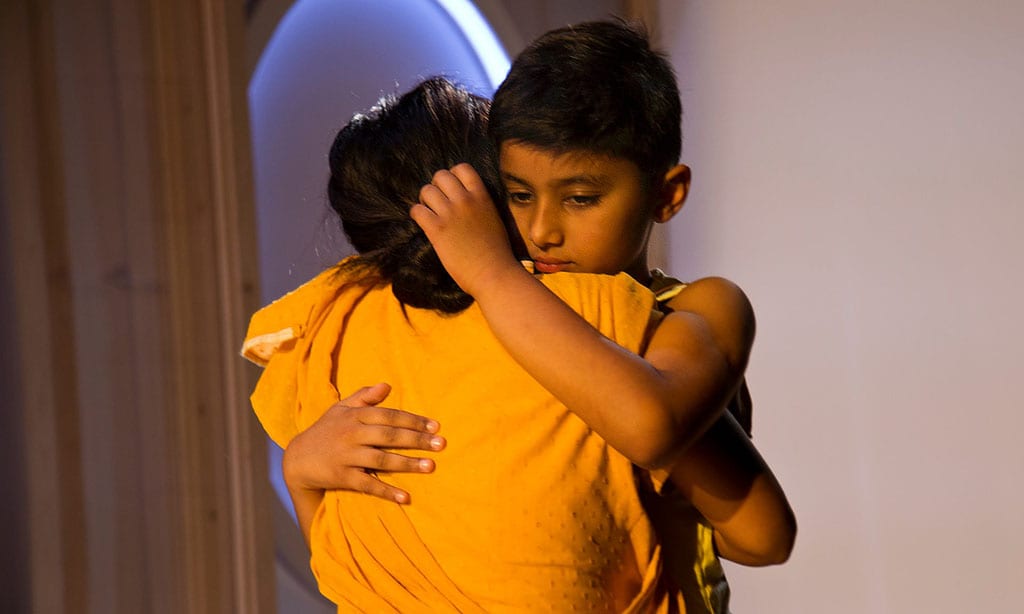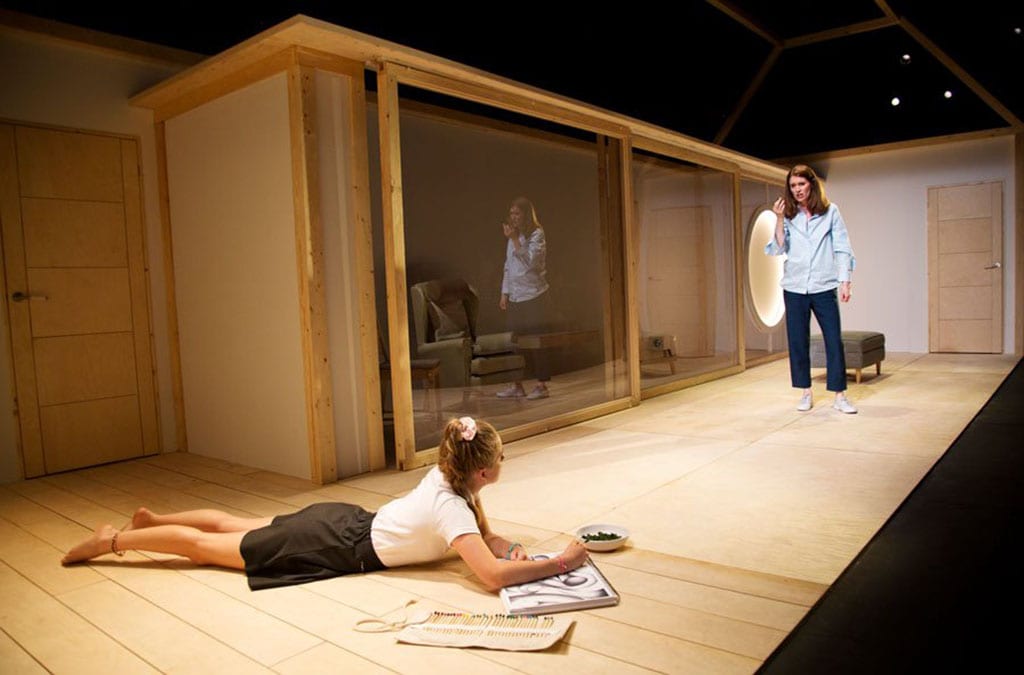Bodies unfurls from one central question: how far would you go for your child?
The narrative follows married couple Clem (Justine Mitchell) and Josh (Jonathan McGuiness) as they seek a surrogate mother to carry their child. With the subplot of Clem’s elderly and ailing father (Philip Goldacre) neatly intertwined in the main narrative, Bodies is an exploration of the limits of the human body in an age in which modern technology has conjured an illusion of human invincibility.
Franzmann’s text is almost overly burdened with a philosophical debate about the relationship between motherhood and surrogacy. Clem’s imagined teenage daughter, named only Daughter (Hannah Rae), is the lynchpin of this debate: ‘Do you think the surrogate has a heart bursting with love for me? Guarding me with her life. Roaring like a lion.’ From the outset, the play revolves around this mysterious, life-giving surrogate mother and, as the play progresses, attempts to shed light on this woman.
The surrogate mother, Lakshmi (Salma Hoque), is a woman from Delhi supposedly being cared for by a surrogacy clinic. In her first appearance, she meets Clem and Josh via a Skype call and is ostensibly hiding her true feelings and the real conditions of the clinic. Obedient, shy, and obliging, Lakshmi beams a fake smile to the nervous English couple as they ask her how she feels to carry their child. It is impossible to ignore the historical relationship between the countries in this sanitised, uncomfortable scene; a benevolent but unlucky English couple taking to the formerly colonised India to take advantage of Lakshmi’s lack of legal rights as an Indian surrogate. Lakshmi’s story is revealed, and it is the true tragedy of the play, compared to Clem’s bourgeois life infused with home-made kale chips, sliding glass doors, and iPads. A widow, Lakshmi was forced to leave her two young children unprotected as she moved into the surrogacy clinic with the promise of £22,000 after delivering a healthy baby. Overcome with the pain of leaving her children and disgusted by the thought of another’s baby growing inside her, Lakshmi hurts herself to the point of abortion.
Although morbid and devastating to watch, it is an act of defiance against years of deep-seated historical oppression and lack of legal rights – within her home, India, and externally, from the British. Without belittling Clem’s visceral reaction to the abortion which is beautifully executed by Mitchell and the real stories of women who have suffered losses by their surrogates, the presentation of Lakshmi’s story and the interaction with Clem’s story is disappointingly typical of ‘white feminism’. Lakshmi’s story is merely a footnote, a trigger in Clem’s story; when Clem hears of Lakshmi’s conditions, children, and the induced abortion, she spirals into a breakdown. Meanwhile, Lakshmi is barely given a voice to tell her story; she speaks largely in Urdu, her mother-tongue a form of empowerment, but ultimately cutting her off from the largely English audience. When she does speak in English, it is with broken words interjected into the speech of Clem’s imagined daughter. The divide between the white, middle class English woman and the working class Indian woman heavily favours Clem and is most evident when a heavily pregnant Lakshmi paints the walls of Clem’s living room throughout several scenes.
Gabriella Slade’s stage design is chic and perfectly serves the contemporary setting of the play. The film projections are awkward and too infrequent to make any real impact or contribution to the production but the standard of acting is uniformly good. In particular, Mitchell’s Clem is utterly convincing; exhausted, sometimes awkward, and more-often-than-not unlikeable, Clem is a well-rounded protagonist – but one which could easily be compromised to shed light onto the silenced, forgotten stories of women of colour.
A nuanced play about motherhood, Bodies is an attempt at intersectional feminism which unfortunately falls short – a disappointment but unsurprising for the white-centric Royal Court Theatre.



